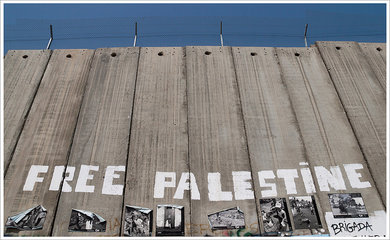On the surface Israel and Turkey have shared quite a bit in common as peripheral Middle Eastern countries. Neither have a majority Arab population, both are popular tourist destinations where one can enjoy a beach/sun holiday and/or visit the many cultural and historical sites both countries have to offer.
On the other hand however both also possess highly controversial reputations as a result of the ongoing Kurdish and Palestinian conflicts. With the recent rise to infamy and notoriety of the Islamic State (ISIS) terrorist gang both have reacted in ways that indicate their long-term preoccupation with these issues has in a sense blinded them to the real threat ISIS could pose to them.
Let’s start with Israel: When ISIS began to really dominate the headlines in the summer of 2014 with its rapid blitz across Northern Iraq Israeli-Palestinian tensions boiled over after the murder of three Israeli teenagers in the West Bank and the subsequent Israeli crackdown throughout that territory. This sparked another war between Israel and Hamas (the third and largest to date) in the Gaza Strip. It lasted for 50 days, left over 2,200 dead in its wake and further devastated the coastal Palestinian enclave. Noticing the widespread condemnation of the crimes of ISIS in Iraq and Syria around the same time Israeli Prime Minister Benjamin Netanyahu sought to connect the two conflicts by proclaiming that: “Hamas is ISIS and ISIS is Hamas.”
His aim of conflating the two groups was clearly aimed at casting Israel’s war with that group as being the same as the struggle of the various powers arrayed against ISIS. However the reality is, as always, much more complicated. Hamas rule in Gaza has effectively become a lesser-evil de-facto bulwark for Israel against ISIS-like Salafi groups (such as the Omar Brigades in Gaza and the group formerly known as Ansar Bait al-Maqdis in the neighbouring Egyptian Sinai – which pledged its loyalty to ISIS late last year) who seek to overthrow its regime. While Hamas are certainly no misunderstood pacifists they are not, in the words of the former head of the Israeli Army’s Southern Command (hence the command tasked with ensuring the security of that volatile Israeli-Gaza frontier) Maj. Gen. Sami Turgeman, seeking “global jihad” like ISIS but actually stability and longevity in power in that territory. Turgemen also believes there is no feasible alternative to Hamas which Israel could help supersede that group with. Therefore Israeli military operations aiming to cripple that group could therefore, inadvertently, empower the likes of ISIS which could, in turn, prove to be a much greater threat to Israel’s security than Hamas – which has proven it can abide by ceasefire agreements and hasn’t shown itself to be recklessly suicidal in the way that ISIS has time and again.
More generally ISIS sees Israel-Palestine as being part of its caliphate and sees both Hamas and the Israeli government as its enemies–a far cry from both groups being indistinguishable. This Israeli government’s preoccupation with weakening Hamas and maintaining the status-quo in the West Bank could lead to a situation whereby ISIS can more effectively infiltrate the Palestinian territories or utilize existing tensions to its advantage by stirring-up yet more destabilizing clashes between Israelis and Palestinians. Both of whom they seek to eventually subjugate under their rule or outright exterminate.
In Turkey the short-lived peace process between the Turkish government and the Kurdistan Workers Party (PKK) broke down after the latter, acting upon their belief that Turkey was allowing ISIS to massacre Kurds inside Turkey (after the bombing, most likely carried out by ISIS, of a gathering of leftist Kurdish youths in the Turkey-Syria border-town of Suruc last July which killed 32), murdered two Turkish police officers in “retaliation”. After a brief hiatus the 29-year-old-war between Ankara and the PKK recommenced with increased intensity. While Ankara simultaneously declared war on ISIS, for their killing of a Turkish border-guard (after whom the operation is named) rather than scores of Kurds, and the PKK it has focused its firepower overwhelmingly on the latter ever since, viewing ISIS as a mere sideshow at best.
Even when suicide bombers butchered 102 civilians at a peace rally of Kurdish political activists in the center of the Turkish capital in October the Turkish President Recep Tayyip Erdogan wasn’t content to blame just ISIS. Hoping to implicate both the PKK and the Syrian regime he claimed that both those entities had conspired to bomb that rally along with ISIS. Despite the salient fact that it was a gathering of Kurdish HDP party members, a party he long accused of being a part of the PKK, and the fact that the PKK forces Turkey has been bombing in Iraq have earnestly fought against ISIS terrorists there.
Such bizarre comments are arguably a direct result of Mr. Erdogan’s short-sighted and monomaniacal obsession with crushing the traditional enemy embodied by the PKK while overlooking the threat posed by ISIS. In fact the destabilization of southeastern Turkey will, predictably, engender further conflict and with it a more fertile ground for ISIS which clearly benefits from its enemies disorder and disarray (they initially got a foothold for their criminal entity as a result of the widespread instability brought about by the ongoing Syrian Civil War).
Indeed a Syrian human rights activist group operating underground in the ISIS-occupied city of Raqqa in Syria named ‘Raqqa is Being Slaughtered Silently’ claimed two of its activists were beheaded inside Turkey itself in early November for their documentation and exposure of ISIS crimes. A striking example of the reach, especially coupled with the Ankara bombing (the largest terror attack in Turkey’s modern history), of that terrorist group.
Both governments’ continued underestimation of the clear and present danger of ISIS capitalizing upon these destabilizing age-old conflicts is something they continue to do at their own peril.
Photo by Montecruz Foto, licensed by a Creative Commons Attribution-ShareAlike 2.0 Generic license

